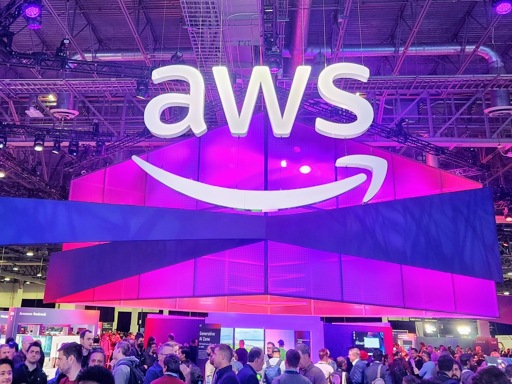Amazon cuts hundreds of AWS cloud jobs after strategic review, says AI wasn’t the main factor
-
This post did not contain any content.
-
This post did not contain any content.
The main factor was they were spending too much headcount. The AI was just a means to allow them to reduce spending.
-
This post did not contain any content.
Wonder if this will slow down the new data center builds?
-
This post did not contain any content.
Amazon has 1.5 million employees. I’m sure corporate side is a small chunk of that but a giant company cutting a few hundred doesn’t sound like big news?
-
Amazon has 1.5 million employees. I’m sure corporate side is a small chunk of that but a giant company cutting a few hundred doesn’t sound like big news?
Amazon! Job cuts! Recession! Scary!!
-
Amazon has 1.5 million employees. I’m sure corporate side is a small chunk of that but a giant company cutting a few hundred doesn’t sound like big news?
Of which probably about 90% are minimum wage employees. Cutting a few hundreds that are not minimum wage employees does make a difference. Is the goal to reach 99.99% minimum wage work force? I'm sure it is.
A good company should be reducing the % of minimum wage employees instead while maintaining good profit. But I guess double digit growth is more important.
Amazon is one of the biggest company on the planet what they do, no only sets precedents but also is a visible exemple of what is "successful" and morally "acceptable".
-
This post did not contain any content.
They probably are not broadly lying about AI replacement being the main factor.
Turns out... Amazon runs AWS for businesses... and also Amazon.com the online retail megastore and logistics service.
Every other business is laying people off?
Less B2B AWS demand.
Everyone is now unemployed?
Less consumer demand, downsize all aspects of Amazon.com storefront and logistics.
...
I'd actually argue that any serious modern economist should be paying attention to AWS and other enterprise level, scalable server solutions...
... That's a leading indicator of at this point, of broad economic conditions.
If AWS and similar departments at similar companies... stop expanding so much, when the rest of the economy seems to be doing ok?
Yeah, that means growth in demand for basically core business software infrastructure is stalling, and it'll take 6 to 18 months to filter through to the rest of the economy and become apparent in other metrics.
-
This post did not contain any content.
That's funny because everyone I know at AWS recently said there was this big memo or meeting or something and they straight up said demand for some of their services and/or upsells has decreased because of prolific access to AI.
-
They probably are not broadly lying about AI replacement being the main factor.
Turns out... Amazon runs AWS for businesses... and also Amazon.com the online retail megastore and logistics service.
Every other business is laying people off?
Less B2B AWS demand.
Everyone is now unemployed?
Less consumer demand, downsize all aspects of Amazon.com storefront and logistics.
...
I'd actually argue that any serious modern economist should be paying attention to AWS and other enterprise level, scalable server solutions...
... That's a leading indicator of at this point, of broad economic conditions.
If AWS and similar departments at similar companies... stop expanding so much, when the rest of the economy seems to be doing ok?
Yeah, that means growth in demand for basically core business software infrastructure is stalling, and it'll take 6 to 18 months to filter through to the rest of the economy and become apparent in other metrics.
And the TACO did it again
-
This post did not contain any content.
Amazon cuts lots of jobs constantly. They have turnover requirements for pretty much all departments. They are notorious for firing people of they think they could replace with anyone higher performing, including people undergoing cancer treatment. In the industry being fired from Amazon is often seen as a right of passage.
-
-
-
-
Dentist accused of fatally poisoning his wife asked daughter to create AI deepfake of mom asking for chemicals
Technology 1
1
-
-
-
The Current System of Online Advertising has Been Ruled Illegal by The Belgian Court of Appeal. Advertising itself is Still Allowed, but not in a Way That Secretly Tracks Everyone’s Behavior.
Technology 1
1
-





